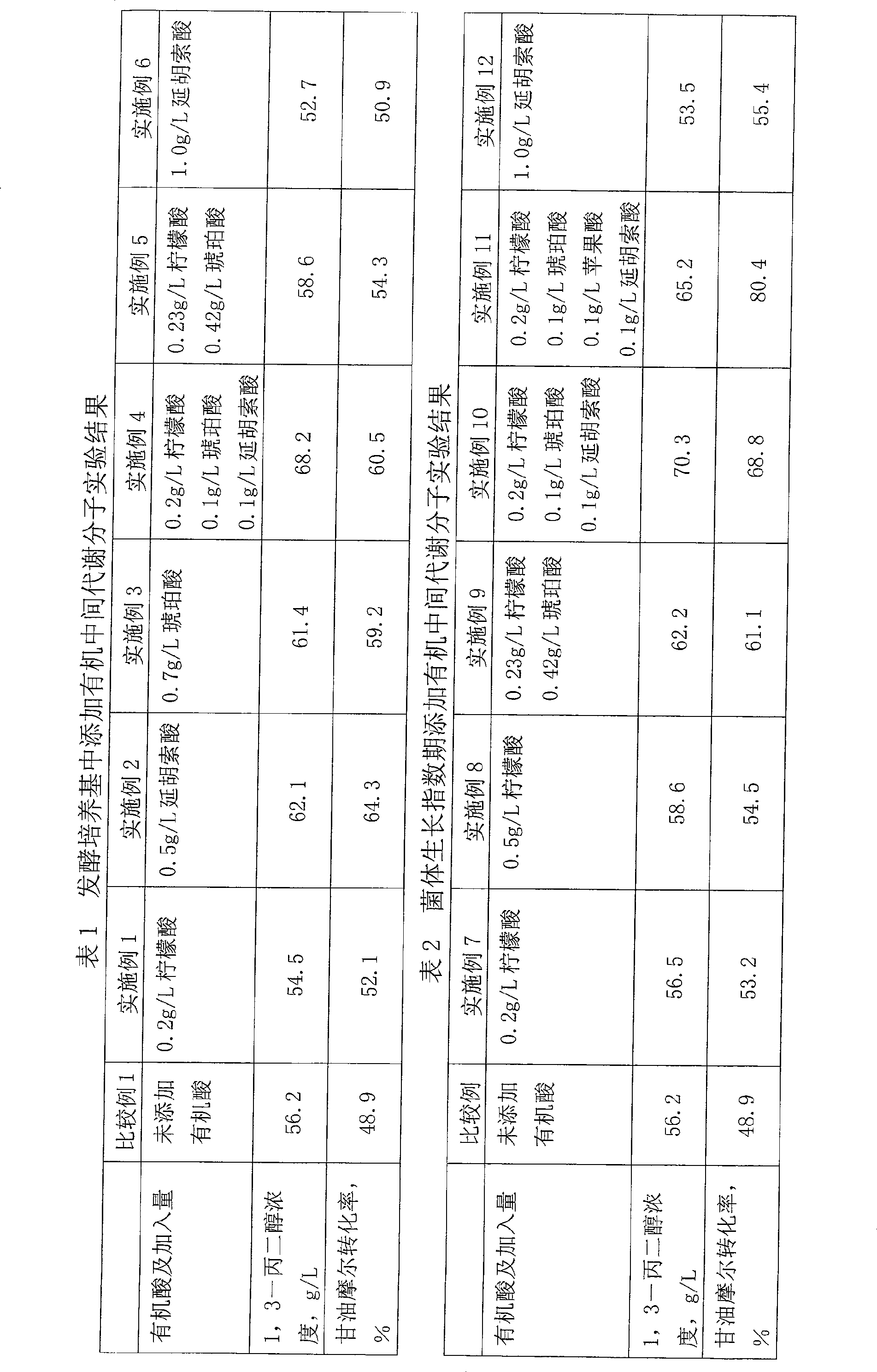Method for producing 1,3-propylene from microorganism using glycerol anaerobic fermentation
An anaerobic fermentation and propylene glycol technology, applied in 1 field, can solve the problems of low fermentation conversion rate, achieve the effects of reducing production cost, improving substrate conversion rate, and shortening fermentation time
- Summary
- Abstract
- Description
- Claims
- Application Information
AI Technical Summary
Problems solved by technology
Method used
Image
Examples
Embodiment 1
[0023] The bacterial classification used in the embodiment of the present invention is Klebsiella pneumoniae (Klebsiella pneumoniae), comes from the patent bacterial classification of Sinopec Fushun Petrochemical Research Institute, and the bacterial classification is in China General Microorganism Culture Collection Center (CGMCC), and the bacterial classification preservation number : 0798.
[0024] There are two types of medium: seed medium and fermentation medium:
[0025] Seed medium composition: (1L)
[0026] K 2 HPO 4: 34g KH 2 PO 4 : 13g
[0027] (NH) 4 SO 4 : 6g MgSO 4 ·7H 2 O: 0.2g
[0028] CaCl 2 ·H 2 O: 0.02g CaCO 3 : 2.0g
[0029] Yeast paste: 1.0g Glycerin: 60g
[0030] Fe 2+ Solution: 2.0mL Trace element solution I: 1.0mL
[0031] where Fe 2+ Solution: (FeSO 4 5g / L HCl (37%) 4.0mL)
[0032] Composition of trace element solution I (mg / L):
[0033] MgSO 4 4H 2 O: 100mg / L ZnCl 2 : 70mg / L
[0034] Na 2 MoO 4 2H 2 O: 35mg / LH 3 BO 3 : 60m...
PUM
 Login to View More
Login to View More Abstract
Description
Claims
Application Information
 Login to View More
Login to View More - R&D
- Intellectual Property
- Life Sciences
- Materials
- Tech Scout
- Unparalleled Data Quality
- Higher Quality Content
- 60% Fewer Hallucinations
Browse by: Latest US Patents, China's latest patents, Technical Efficacy Thesaurus, Application Domain, Technology Topic, Popular Technical Reports.
© 2025 PatSnap. All rights reserved.Legal|Privacy policy|Modern Slavery Act Transparency Statement|Sitemap|About US| Contact US: help@patsnap.com

